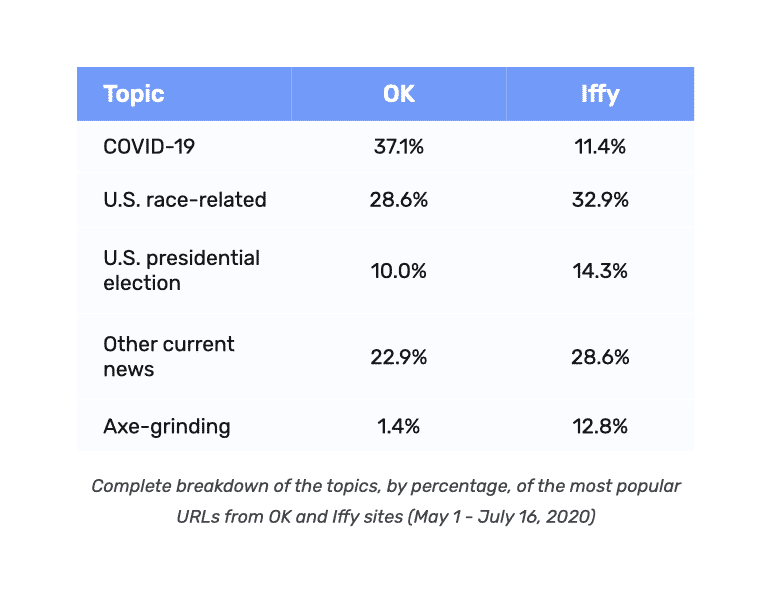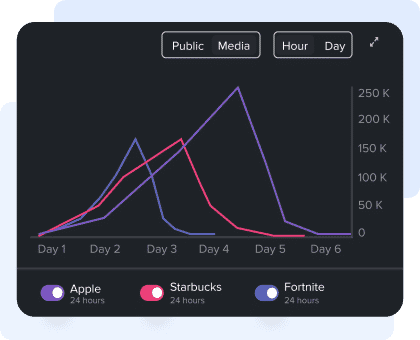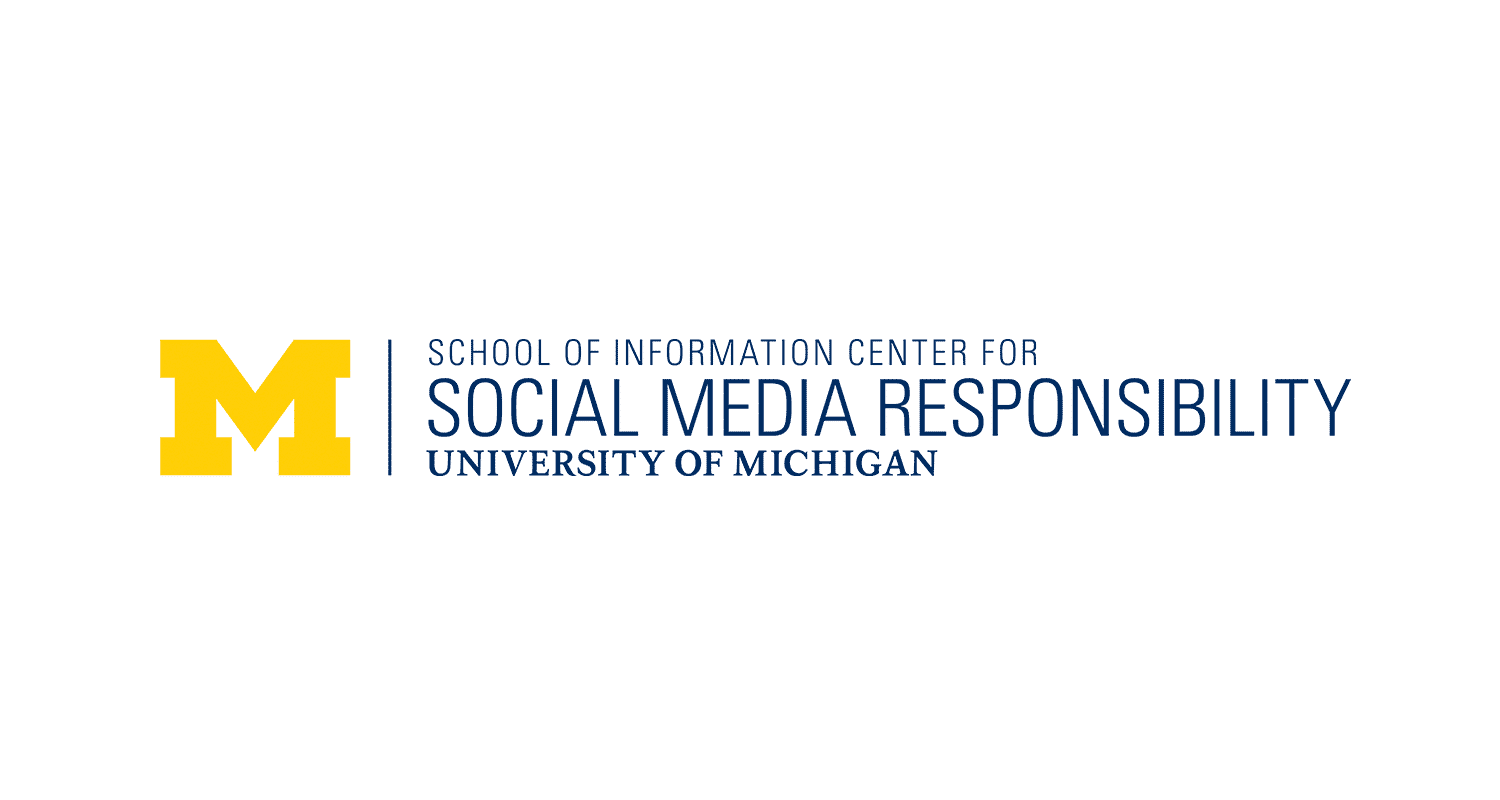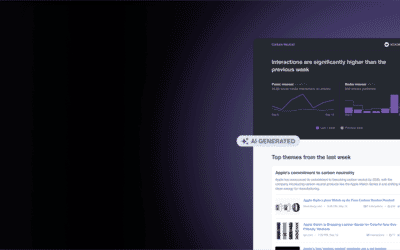At the University of Michigan Center for Social Media Responsibility (CSMR), we publish and monitor a metric we call the Iffy Quotient—the fraction of the most popular URLs on Facebook and Twitter that come from “Iffy” sites that often publish misinformation. NewsWhip determines the most popular URLs each day, while NewsGuard provides us with website ratings, with Media Bias/Fact Check providing ratings for sites unrated by NewsGuard.
Popular content on social media from trustworthy sites and from Iffy ones can at times share common traits, with the most predictable likely being their topics. Their differences, though, reveal strategies and tendencies that distance Iffy sites from their trustworthy counterparts and at the same time shed potential light on the qualities and perspectives of those who engage with these kinds of content.
This is the companion piece to our previous post on the hottest topics on social media during the onset of summer 2020. In that post, we revealed that COVID-19, race relations in the U.S., and the U.S. presidential election were three frequent topics of popular news items from both trustworthy (what we call “OK”) and Iffy websites, when measured by their popularity on Facebook and Twitter. That much may not come as a shock, but what surprised us was the breakdown of the stories by topic from OK and Iffy sites:

These three topics comprised over 75% of OK sites’ popular news stories and a little under 60% of Iffy sites’ popular stories—a significant portion for both types of sites—but the Iffy sites’ stories on the pandemic were much less frequently popular with social media users than their OK sites’ counterparts. Likewise, the Iffy sites’ coverage of the pandemic was far less popular than their own coverage of race relations (and, to a lesser degree, the presidential election). Yet the question from our last post lingers: what else was being discussed in the rest of the popular news items, the other 24.3% of OK sites’ stories and, especially, the other 41.4% of Iffy sites’ stories?
Other current news
Beyond the three major topics, a collection of miscellaneous news stories appeared among the popular stories from OK sites. The topics ranged from gun control legislation, violence, and the U.S. government to pop culture, the arts, and non-U.S. news. These stories were 22.9% of the OK sites’ popular stories.
Similarly, other popular stories from Iffy sites focused on miscellaneous current events, touching on U.S. politics (separate from the presidential election), the media, the police (unrelated to race relations), pop culture, and crime, among other things. Though the topics of these stories were relatively diverse, there was a noticeable trend in the perspective and tone of most of these stories: they often presented news or viewpoints that were unfavorable to the subjects of the stories (e.g. CNN, Democrats, Bill Gates, George Soros), and they typically struck a tone that indicated a more politically conservative alignment.
These stories were 28.6% of the Iffy sites’ popular stories, even greater than their OK site counterparts. (It’s important to note that some popular stories from OK sites also shed unfavorable light on their subjects [e.g. U.S. Customs and Border Protection, Mexico’s President Andres Manuel Lopez Obrador] in the context of reportage or as opinion pieces.)
If you noticed that that 28.6% still doesn’t add up to the 41.4% of Iffy site stories that weren’t about U.S. race relations, the U.S. presidential election, or COVID-19, you’re probably wondering what else is left…
An axe to grind
Another notable disparity between the popular content from OK and Iffy sites exists in the form of what we are calling “axe-grinding”: stories that relitigate past issues or instances that appear (to the author) to have been mishandled previously—typically by an opposing ideological party. 12.8% of the Iffy sites’ popular stories fell into this category, a higher percentage than their COVID-19 stories (11.4%) and nearly as much as their presidential election stories (14.3%).
This axe-grinding was often directed towards the integrity, or lack thereof, of the Robert Mueller investigation, the alleged mistreatment of Michael Flynn, and claims of President Obama’s complicity (or that of his administration) in both. The stories’ tone, content, and intended targets indicated a deeply politically conservative stance, and when rehashing the usual topics a number of stories foregrounded words like “scam” and “witch hunt,” further intensifying an impression of old scores in need of settling.
OK sites did not fully abstain from axe-grinding, but in contrast just 1.4% of their popular stories were of this sort, generally being retrospective critiques of President Trump, his administration, or his political allies. We found that when OK sites produced this type of writing, it tended to be clearly published as an opinion piece.
Taking stock of our findings, then, we can now see the full distribution of story topics for the most popular news stories from OK and Iffy sites:

We can see that the catch-all current news category contains a meaningful percentage of stories from both OK and Iffy sites. This is hardly unexpected since the range of newsworthy topics that may be popular with social media users at any given time is incredibly broad. On the other hand, it may be remarkable that during the period of our analysis there were more popular axe-grinding stories from Iffy sites than there were COVID-19 stories from the same sites, and the Iffy sites’ axe-grinding stories significantly outweighed those published by OK sites by a factor of more than nine. The popularity of axe-grinding stories over pandemic ones on Iffy sites is all the more striking considering that pandemic stories were the single most popular topic from OK sites.
Our findings do not indicate the reasons why we see these trends. But they do reinforce the fact that content creators, especially those from Iffy sites, are adept at identifying topics and talking about them in ways that generate social media engagement. Iffy sites in particular have experienced success with stories that adopt an adversarial tone. From what we saw during the transition into summer 2020, it remains clear that what’s popular with audiences can highly depend on who’s talking about it and how they’re talking about it.

James Park
James Park is the Assistant Director of the Center for Social Media Responsibility at the University of Michigan School of Information. In addition to overseeing the day-to-day alongside the CSMR Director, he also collaborates with partners and stakeholders to advance the Center’s mission and research. He holds a bachelor’s degree from Princeton and master’s degrees from Yale.

Paul Resnick
Paul Resnick is the Michael D. Cohen Collegiate Professor of Information and Associate Dean for Research and Faculty Affairs at the University of Michigan School of Information. He was a pioneer in the fields of recommender systems and reputation systems. The GroupLens system he helped develop was awarded the 2010 ACM Software Systems Award. He co-authored the book Building Successful Online Communities: Evidence-Based Social Design. He earned a bachelor’s degree in mathematics from Michigan and a doctorate in computer science at the Massachusetts Institute of Technology.











